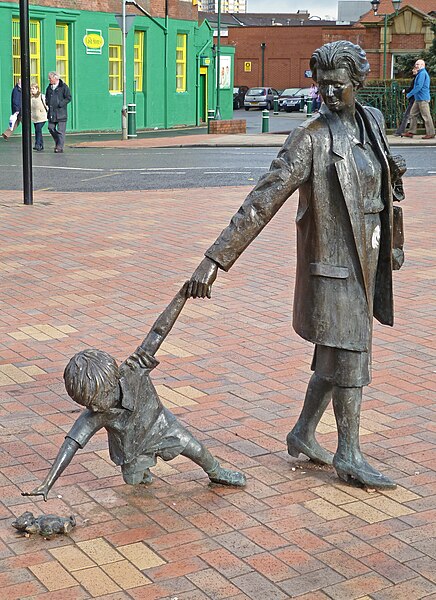10 Do not glorify yourself by dishonoring your father,
for your father’s dishonor is no glory to you.
11 For a man’s glory comes from honoring his father,
and it is a disgrace for children not to respect their mother.
12 O son, help your father in his old age,
and do not grieve him as long as he lives;
13 even if he is lacking in understanding, show forbearance;
in all your strength do not despise him.
14 For kindness to a father will not be forgotten,
and against your sins it will be credited to you;
15 in the day of your affliction it will be remembered in your favor;
as frost in fair weather, your sins will melt away.
My aunt and uncle, and my father and stepmother, have together organized their lives around making sure my now extremely-elderly grandmother receives the care she needs. My other aunt and uncle did the same for my maternal grandmother in the years prior to her death. It’s demanding work, but it’s their work, and though they avail themselves of all the help they can get in making the work happen, it would be unthinkable that they simply abandon their own mother.
As we finalize our retirement planning, my husband and I have been having conversations with our teen and young adult children about their preferences in how to care for us when the time comes — knowing that we can’t truly plan for end-of-life, it will happen when and how it happens, but we can make certain financial choices that will impact the types of resources they have at their disposal. They, too, can begin thinking now about how their life choices over then next five or ten years (professional formation, choice of spouse, place they settle down) will affect the shape of their adult relationship with us.
Neither my husband nor I come from a culture where expectations about extended-family life take a specific, prescribed form. We do come from a culture (late 20th century USA) where independence is considered the pinnacle of human life. To be dependent on nobody for anything is what makes you a superstar. To need others — not just to enjoy them, but to actually need them — is a mark of failure.
It’s a radically screwed up culture. The reality is that all humans need other people, and that all humans pass through phases of life when they are utterly dependent on others.
Because we come from this culture that idolizes the myth of independence, it is difficult to talk with our kids about plans for a time when they may have to take on all kinds of potentially unpleasant and overwhelming work in order to care for us. You’d think aging was invented last week the way Americans tend to act shocked, just shocked, that human minds and bodies are prone to frailty.
Meanwhile, statistically speaking, if we live long enough to need our children to care for us, and they live long enough to do so, we’re probably going to have to depend on them, personally, for that care, because there will be far too many other Gen-Xers competing for the assistance of fewer-per-elder working-age adults than ever. We can reasonably expect professional nursing care to become cost-prohibitive and social security to wane away, all while our retirement savings are eaten up by the inflationary pressure of the US’s current (under all administrations, this isn’t party-specific) spend-and-spend-and-spend fiscal policy.
So while we would have preferred to be able to have more children (alas they don’t grow on trees), we’ve become grateful in a new way for the ones we’ve got. Before we just loved them for the pure goodness and beauty and wonder of their existence. Now we’re beginning to appreciate some of the possible side-benefits of parenthood.
And that, friends, is what I’ve been thinking about as I watch some of the shallower rationales for abortion slinging around Twitter these days: It is much, much easier to keep a straight face and ask your kids to sacrifice for you when you have already proven you are more than willing to sacrifice for them.
Never easy caring for an aging parent, I don’t think. But hella lot easier doing it when you have no doubt in your mind that they are grateful for you, have always loved you absolutely and unconditionally, and would have done, and indeed did, whatever they possibly could to give you the best life they could manage.
My grandparents, though as imperfect as anyone, loved their kids that much and that completely. My husband’s and my parents, though as imperfect as anyone, loved us kids that much and that completely. We kids, all of us with our many imperfections, have in turn loved our children that much and that completely. I certainly don’t count myself perfect either as a parent or as an adult-child. But I can honestly to say to my parents with undying gratitude: When you sow love, you reap it.

Photo by Tim Green of Alan Wilson’s sculpture “Grandmother with Child” (1996), Railway Road, Blackburn, via Wikimedia CC 2.0.















